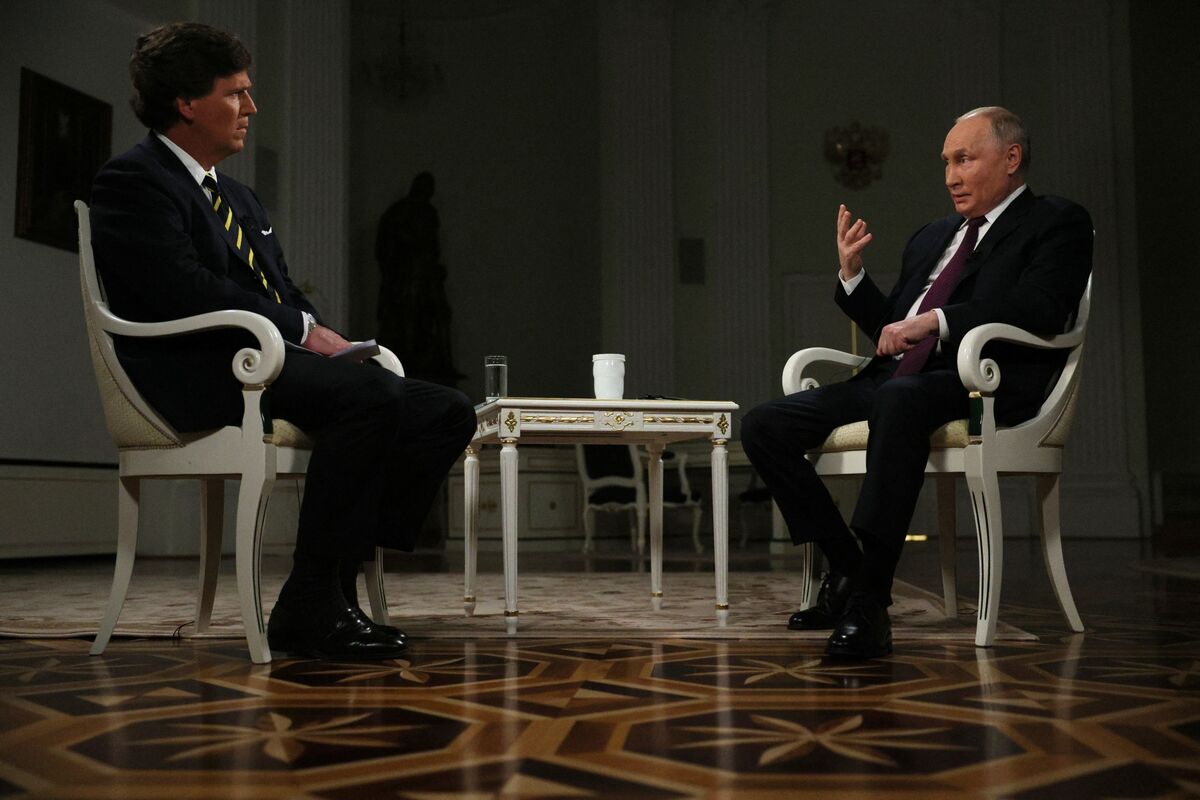American media personality Tucker Carlson hoped Vladimir Putin would use their hotly-anticipated February 6 interview in Moscow to accuse the West of provoking the war in Ukraine. Instead, the Kremlin dictator appeared far more interested in reciting Russia’s distant historical claims to Ukraine and portraying the whole invasion as some kind of anti-Nazi crusade.
With his very first question, Carlson invited Putin to blame NATO and the US for the invasion, only to be met by a half-hour history lecture that came complete with accompanying documentary evidence of seventeenth century diplomatic correspondence. This highly unorthodox approach clearly flummoxed the American, who remained largely passive as Putin rambled on.
Carlson reserved his most biting criticism for Putin’s attempts to justify the invasion by claiming to be “denazifying” Ukraine. Looking back at the interview during a February 27 appearance on Lex Fridman’s podcast, Carlson dismissed Putin’s whole “denazification” narrative as “one of the dumbest things I’d ever heard.”
The US TV host accused Putin of engaging in childish “Nazi” name-calling and said his entire argument was utterly unconvincing. “I hate that whole conversation because it’s not real. It’s just ad hominem,” he commented. “It’s a way of associating someone with an evil regime that doesn’t exist anymore.”
Carlson’s frustration is easy to understand. His interview with Putin was meant to transform the international debate over the war in Ukraine and shift responsibility from Russia to the West. However, the end product was a damaging portrait of the Russian ruler, who came across as an unhinged and dishonest figure whose long reign has left him detached from reality.
Russian efforts to equate Ukrainian national identity with Nazism predate Putin and can be traced all the way back to World War II, when elements of the Ukrainian liberation movement briefly sought to ally with the invading Germans against the Soviet Union. Throughout the Cold War, Kremlin propaganda depicted advocates of an independent Ukraine as fascist sympathizers and Nazi collaborators.
From the very start of his reign in the early 2000s, Putin has actively revived this “Nazi Ukraine” propaganda. Since the seizure of Crimea in 2014, he has frequently used Nazi slurs to justify Russia’s escalating aggression against Ukraine, and cited “denazification” as one of two key war aims when announcing Russia’s full-scale invasion of February 2022.
In reality, Ukraine’s far-right parties have minimal public support and have been consistently rejected at the ballot box. During the country’s last parliamentary election in 2019, a coalition of Ukraine’s main far-right parties managed to secure just 2% of the vote. Meanwhile, Ukrainian President Volodymyr Zelenskyy is Jewish.
While Putin’s claims to be “denazifying” Ukraine are clearly baseless, many observers regard the entire “denazification” narrative as Kremlin code for the de-Ukrainianization of Ukraine. By associating Ukraine with Nazism in the Russian public imagination, Putin has paved the way for a brutal campaign to eradicate all traces of Ukrainian national identity in areas of Ukraine currently occupied by the Russian military.
